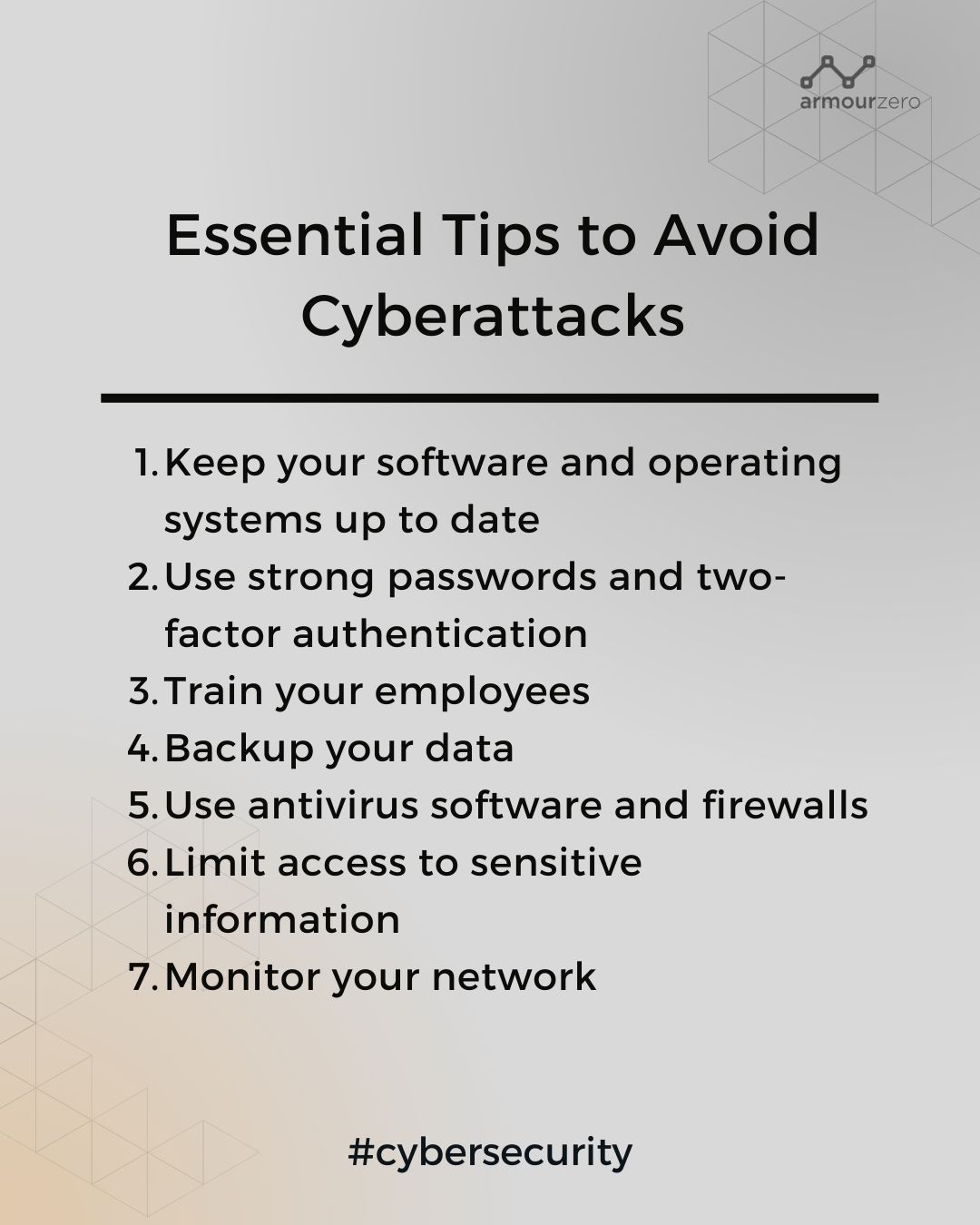Common Cybersecurity
Mistakes in Small Business

Have you ever wondered why cybersecurity is such a big deal for small businesses? It’s because they can be a prime target for cybercriminals who see them as easy prey. With limited resources and expertise, small businesses may make common cybersecurity mistakes that leave them exposed to potential attacks. In fact, according to the 2020 Verizon Data Breach Investigations Report, small businesses accounted for 28% of all data breaches. But don’t worry, by understanding these mistakes and taking some simple steps, you can significantly reduce your risk of a successful cyberattack.
In this article, we’ll cover the cybersecurity essentials, and common mistakes that small businesses make, and provide tips to help you keep your business secure. So, let’s dive in!
Cybersecurity Essentials
Have you ever thought about why cybersecurity is so important for small businesses? Well, let me tell you. Small businesses are responsible for handling sensitive information such as customer data, financial records, and confidential intellectual property. Without proper cybersecurity measures in place, a successful cyberattack could lead to theft or unauthorised access to this information. This could have devastating consequences for the business, both financially and in terms of reputation.
But that’s not all. Cyberattacks can also disrupt business operations and cause significant downtime, which can be catastrophic for a small business’s success. By implementing cybersecurity measures like data backup and disaster recovery planning, small businesses can ensure they can continue operating even in the event of a cyber incident.
Did you know that small businesses may also be subject to cybersecurity regulations and compliance requirements? That’s right! Depending on the industry, small businesses may face penalties, legal action, or damage to their reputation if they fail to meet these requirements.
But it’s not just about meeting requirements. Small businesses can also build trust and loyalty with their customers by demonstrating a commitment to protecting their sensitive information. Cybersecurity breaches can erode customer trust and damage a business’s reputation. By implementing cybersecurity measures, small businesses can show their customers that they take data protection seriously.
Finally, implementing cybersecurity measures can help small businesses avoid financial losses. Cybersecurity incidents can be costly, both in terms of direct financial losses like ransomware payments or legal fees, and indirect losses like lost productivity or reputation damage. By investing in cybersecurity, small businesses can protect their assets and avoid potential financial ruin.
So, there you have it – cybersecurity is an essential component of any small business’s success.
Common Cybersecurity Mistakes
Small businesses are often vulnerable to cyber threats due to their limited resources and expertise. As a result, they may inadvertently make common cybersecurity mistakes that leave them exposed to potential attacks.
- Failing to keep software and operating systems up to date: Cybercriminals are constantly discovering new vulnerabilities in software, and failing to update can leave businesses open to attack. Small businesses should make sure to regularly update their software and operating systems to patch any known vulnerabilities.
- Using weak passwords or using the same password for multiple accounts: Weak passwords are easily guessed or hacked, while using the same password for multiple accounts means that if one account is compromised, all accounts are at risk. Small businesses should encourage employees to use strong, unique passwords for each account and implement multifactor authentication wherever possible.
- Not training employees in cybersecurity best practices: Employees can be a weak link in the cybersecurity chain, and not providing adequate training leaves businesses vulnerable to human error or social engineering attacks. Small businesses should make sure that all employees receive regular training on how to identify and respond to cyber threats.
- Not backing up data regularly: Data backups are essential for recovering from a cyber incident or other types of disasters such as fire, flood, or hardware failure. Without backups, businesses risk losing critical data and disrupting operations. Small businesses should establish a regular backup schedule and store backups securely offsite or in the cloud.
- Failing to take cybersecurity threats seriously: Some small businesses may fail to take cybersecurity threats seriously, thinking that they are too small to be targeted or that cybersecurity is too expensive. However, cybercriminals do not discriminate based on the size of the target, and the costs of a successful cyberattack can far outweigh the cost of implementing cybersecurity measures. Small businesses should prioritise cybersecurity as a key component of their overall business strategy.
- Not securing mobile devices and remote workers: With the rise of remote work, small businesses should ensure that mobile devices and remote workers are secured against cyber threats. This includes implementing mobile device management solutions, providing secure remote access, and requiring strong authentication for remote workers.
- Not monitoring network activity: Small businesses should monitor their network activity to detect and respond to potential cyber threats. This includes implementing network monitoring tools, establishing incident response procedures, and regularly reviewing logs and alerts.
By taking steps to address these common cybersecurity mistakes, small businesses can significantly reduce their risk of a successful cyberattack.
Essential Tips to Avoid Cyberattacks
Small businesses can be at risk of cyberattacks because they might not have the same security resources as larger companies. Here are some things you can do to protect your business from cyber threats:

- Keep your software and operating systems up to date: Software updates can help prevent hackers from taking advantage of known vulnerabilities. It’s like keeping your house locked to prevent burglars from getting in.
- Use strong passwords and two-factor authentication: Use passwords that are hard to guess and different for each account. You can also use two-factor authentication to add an extra layer of security.
- Train your employees: Teach your employees how to recognise suspicious emails and other cyber threats. They should know what to do if they suspect something is not right.
- Backup your data: Back up your data regularly can help you recover important information if something goes wrong.
- Use antivirus software and firewalls: Antivirus software can help detect and remove malware, while firewalls can prevent unauthorised access to your network.
- Limit access to sensitive information: Only give access to sensitive information to employees who need it for their jobs.
- Monitor your network: Keep an eye out for suspicious activity on your network, such as unusual logins or transfers of data.
By taking these steps, you can help protect your business from cyber threats and keep your sensitive information safe.
If you’re looking to improve your business’s cybersecurity to include third-party and supply chain, consider trying cybersecurity risk assessment from ArmourZero to get a clear understanding of your risks and prioritise your efforts to reduce those risks.
![]()
Written by:
Bernadetta Septarini (Content Marketing). Experienced content marketing and social media in the information technology and services industry.
Share this post
Related Posts

Earth Day: The Connection of Cybersecurity and Sustainability
- 22 Apr 2024
- By:Fanny Fajarianti
- Category: ArmourHacks
Uncover the link between Earth Day and Cybersecurity, promoting sustainability through data protection and environmental stewardship. Let’s secure a greener future.

What is DevSecOps? Definition & Best Practices for Tech Industries
- 18 Apr 2024
- By:Bernadetta Septarini
- Category: ArmourHacks
Learn about DevSecOps, principles, and best practices for the tech industry. Integrate security seamlessly into software development and enhance quality.

Safeguarding Your Organisation During the Hari Raya Holiday
- 09 Apr 2024
- By:Bernadetta Septarini
- Category: ArmourHacks
Protect your organisation from holiday cyberattacks during Hari Raya. Learn more about the risks and best practices for holiday security with ArmourZero.

Cyberattacks: A Growing Threat to Higher Education
- 02 Apr 2024
- By:Fanny Fajarianti
- Category: ArmourHacks
Universities hold sensitive data but face cyberattack risks in the digital age. Explore the impact of cyberattack and learn how to protect your institution.

